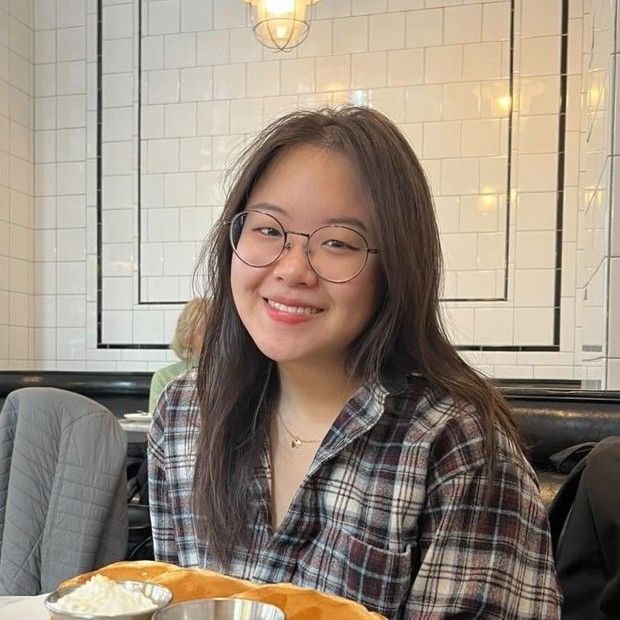Thoughts on Theses: Jacqueline Kim ’23
Jacqueline Kim ’23 is an English major who wrote a novella titled “A Swift Boat, A Wide Sea” for her creative-writing thesis. Her thesis advisor is Assistant Professor of English Thirii M. Myint.

Jacqueline Kim ’23 is an English major who wrote a novella titled “A Swift Boat, A Wide Sea” for her creative-writing thesis. Her thesis advisor is Assistant Professor of English Thirii M. Myint.
Kim is telling a story of Korean female friendship within an elite institution through her creative-writing thesis — a novella titled “A Swift Boat, A Wide Sea.” The novella focuses on the daily lives of a Korean and Korean-American student at the University of Oxford, and the significance of their friendship during and after their studies.
Kim’s thesis was inspired, in part, by her study-abroad experience at the University of Oxford in the fall of 2021. What stood out most from her time in the program were the friendships she developed in the United Kingdom — formed rapidly in an academically intense environment, but which sometimes felt fleeting, as distance creates an inevitable separation. These friendships, Kim noted, “mean so much to you in the moment” but can feel ephemeral in the grand scheme of life.
After returning from the program her junior spring with the experience fresh in her mind, Kim began writing “A Swift Boat, A Wide Sea” in “Fiction Writing II,” a class taught by her eventual thesis advisor, Assistant Professor of English Thirii M. Myint. The relationship between the two women was interpreted differently by some of her classmates. Kim had envisioned the primary dynamic between the protagonists (two Korean students named Haeyoon and Noa) as entirely platonic. However, many of her classmates believed it should have been written as romantic and felt disappointed by their platonic relationship, leading Kim to reconsider her work. Ultimately, however, she returned to the piece months later and kept the relationship platonic as originally planned.
“A Swift Boat, A Wide Sea,” as Kim described it, is a “very quotidian” work that mainly encapsulates the everyday lives and experiences of protagonists Haeyoon and Noa. In her novella, “a lot happens, but nothing really happens,” she said.
As a bilingual writer fluent in English and Korean, Kim enjoys “playing around” with language, and the title stems from her protagonists’ names — Haeyoon means “wide sea,” and Noa means “swift boat.” Kim romanized Korean words, and provides footnotes for her English readers, using connotative definitions instead of denotative ones.
Kim noted that she has felt pressure to tackle the more serious topics that many other Asian American writers often cover in their work. But as she asks, “What isn’t important or radical about an Asian woman writing about pleasure?”
Kim is grateful to Myint, who taught Kim in both her prior fiction-writing classes, for advising her thesis. Kim cites her strong relationship with Myint as deeply beneficial to her writing process. She considers it “so rare and lucky to have someone reading your work all the time … [it’s] so crazy valuable to have someone constantly take your work seriously.” She regrets that this experience is mainly limited to the context of writing a thesis. However, she hopes to keep writing in the future. While she is happy with her thesis experience, she wonders “what [she] could’ve done with it if [she] had had more time.”
Kim cites Dostoevsky’s “The Brothers Karamazov” as a major inspiration for her work. She first read the book in “The Brothers Karamazov: a Multidimensional Approach,” taught by Professor of Russian, Emeritus Stanley Rabinowitz. Kim credits the well-written dialogue as a helpful reference point for writing the dialogue of “A Swift Boat, A Wide Sea.” Her other inspirations include Harvard sociologist Anthony Abraham Jack ’07’s “The Privileged Poor” and Audre Lorde’s “Uses of the Erotic.”
Kim recommended that students who are considering writing a thesis “think about the books that you really like, and try to learn from them.” The common advice for thesis writers is to start in the summer, she said, but that this advice is rarely taken. Instead, Kim said, rising seniors should “use the summer to read [your] favorite books.”
Another point that Kim raised was that female writers of color “don’t have to write about themes that are usually associated with the genre for it to count or for it to be important.” She urged students “[not to] forget that creative writing is also knowledge production, just as much as critical papers.”
To seniors feeling hesitant about pursuing a creative thesis, she said, “Just because it seems fun and maybe even frivolous doesn’t make it less important … If you’re writing something, it is saying something.”
And she emphasized the importance of thesis writing being a positive experience. “If you’re not having fun, then something has to change,” she said. “I had a lot of fun writing my thesis. I would do it all over again.” At the end of the day, she said, there’s no need for comparison between thesis writers: “Whatever you choose to do is good.”




Comments ()